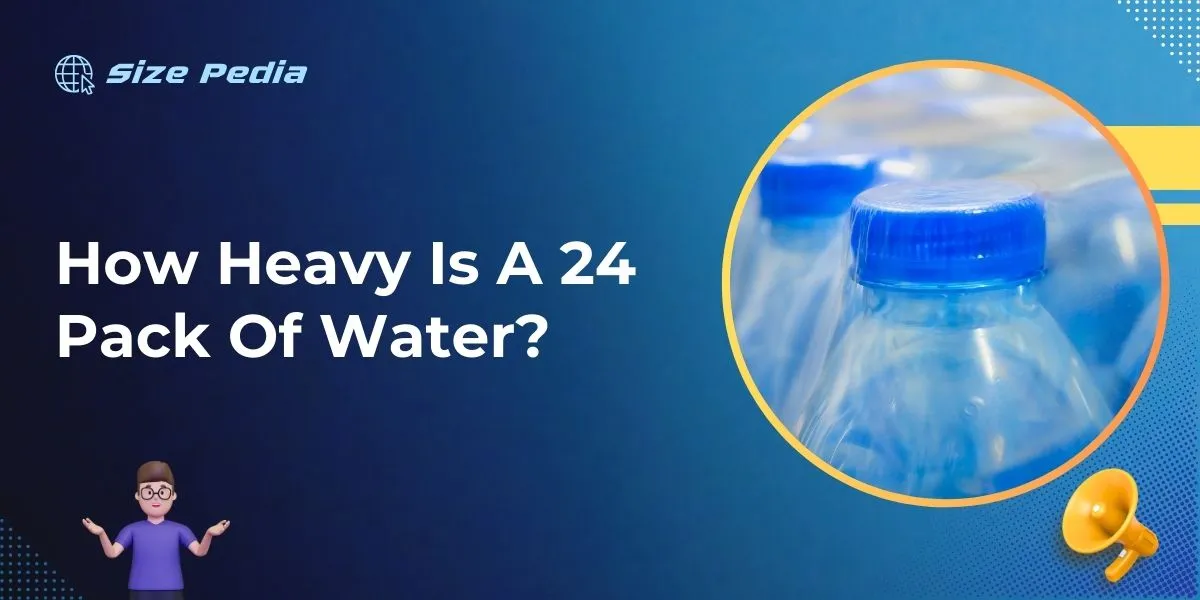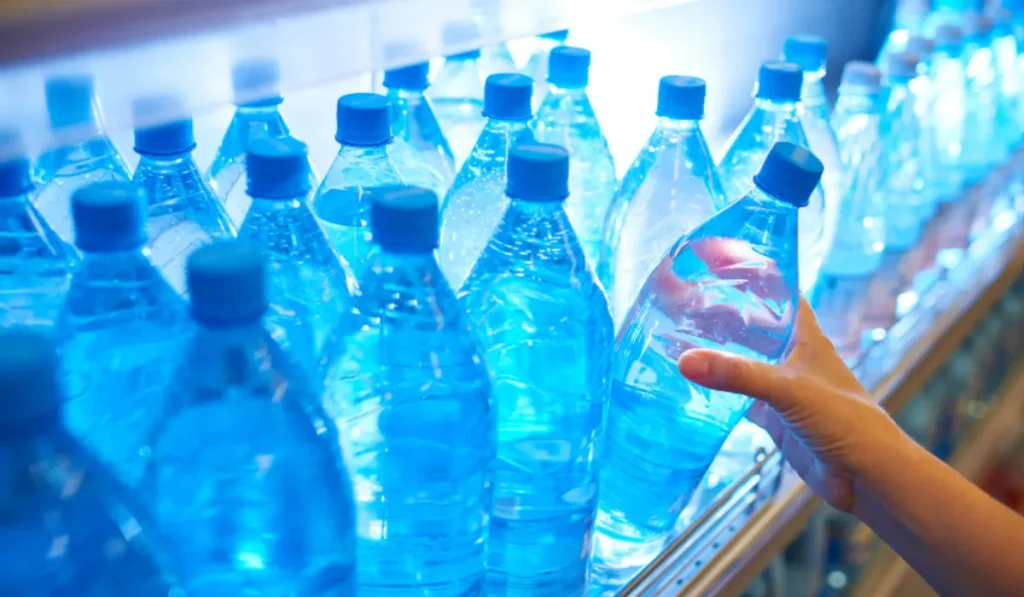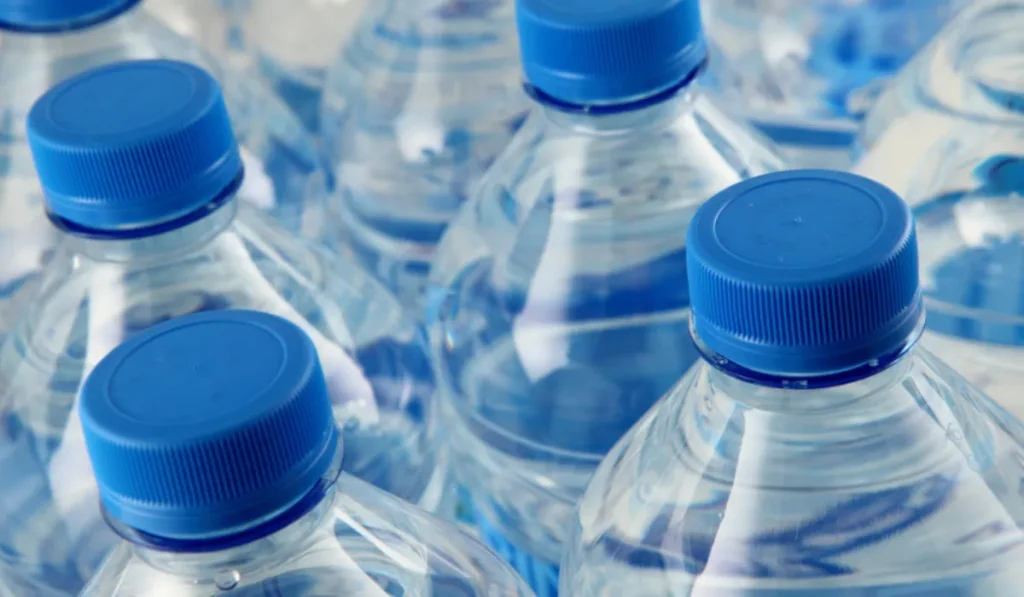A 24-pack of bottled water typically weighs around 26-30 pounds (11.8-13.6 kg). The weight can vary depending on the size of the bottles.
Understanding the weight of a 24-pack of water is crucial for transportation and storage planning.
Bottled water is a common necessity for events, emergency preparation, or everyday use.
Consumers and businesses alike need to know the weight for logistical reasons—for example, when calculating shipping costs or determining how much can be carried on a hike or during a grocery trip.
The convenience of bottled water comes with the responsibility of managing its weight, especially when buying in bulk.
So, whether you’re stocking up for a home emergency kit or planning a community event, the weight of your water supply is a detail that cannot be overlooked.

Weight Of Hydration: A 24 Pack Of Water
When we think about staying hydrated, we rarely consider the actual weight we carry. A 24 pack of water bottles is a common purchase for families, individuals who exercise frequently, or anyone planning for an event.
Let’s dive into what this bundle of hydration weighs and why it matters.
Average Weight Per Bottle
Water bottles come in various sizes, but the standard bottle holds 16.9 ounces (500 milliliters).
Made from lightweight plastic, the bottle itself only adds a minimal amount to the total weight. An average bottle filled with water approximately weighs 1.2 pounds (0.54 kilograms).
- Empty bottle weight: 0.1 pounds (0.05 kilograms)
- Water weight: 1.1 pounds (0.5 kilograms)
- Total bottle weight: 1.2 pounds (0.54 kilograms)
Total Weight Calculation
To calculate the total weight of a 24 pack, multiply the weight of a single bottle by 24. It’s simple math that unveils the heft of a full pack.
This is important for handling and storage, especially when purchasing multiple packs.
| Bottle Weight | Quantity | Total Weight |
|---|---|---|
| 1.2 pounds (0.54 kg) | 24 | 28.8 pounds (13.06 kg) |
A 24 pack of water bottles typically totals approximately 28.8 pounds (13.06 kilograms).
Remember this figure next time you reach for that bulk pack of water. It’s not just the number of bottles, but the weight that showcases the value of staying hydrated.
Factors Affecting Water Bottle Weight

The weight of a 24-pack of water can vary based on several factors. Understanding these can help you estimate how much your water purchase will weigh.
Main factors include bottle materials and the volume of water each bottle holds. Let’s explore these in more detail.
Bottle Materials And Design
Bottle materials play a significant role in the total weight. Different plastics like PET (polyethylene terephthalate) or HDPE (high-density polyethylene) offer various strengths and weights.
- PET bottles are lightweight and used widely for convenience.
- HDPE bottles are heavier but stronger.
The design of the bottle also affects the weight. Some bottles have thicker walls or added features like handles which increase the weight.
Volume Variations
The volume each bottle holds can change the pack’s weight dramatically. A standard bottle holds about 16.9 ounces (500 ml) of water.
| Size | Weight per Bottle |
|---|---|
| 500 ml (16.9 oz) | About 1.04 lbs (0.47 kg) |
| 1 L (33.8 oz) | About 2.08 lbs (0.94 kg) |
If a pack contains bottles with more than 16.9 ounces, it will be heavier. Some packs may mix bottle sizes, which can also affect the total weight.
Calculating Transportation Costs

Understanding the cost of transporting a 24-pack of water is crucial for businesses. It’s not just about the price tag.
The weight plays a pivotal role in calculating efficient delivery strategies. Let’s delve into the details and unravel the shipping costs affected by the weight of water packs.
Impact Of Weight On Shipping
Moving goods from one point to another has its costs. Shipping costs rise with weight. A 24-pack of water can weigh around 40 pounds.
This will significantly affect the transportation costs. Shipping carriers charge more for heavier items.
They use a pricing method called dimensional weight. This method considers size and weight. Thus, heavier items like water packs cost more to ship.
Handling Concerns For Retailers And Consumers
- Retailers must consider handling efforts. Employees lift and move heavy items. This can lead to higher labor costs.
- For consumers, handling a 24-pack of water can be a challenge. It requires physical strength and caution.
- Both retailers and consumers might need special equipment. Items such as hand trucks or carts help move heavy loads.
Awareness of the handling concerns leads to better preparation. It ensures that everyone involved can manage the additional weight.
It also maintains safety standards during transportation and unloading.
Environmental Considerations
Lugging around a 24 pack of water might build muscle, but the environment pays a bigger price. Here’s how your convenient pack weighs on nature.
Plastic Vs. Eco-friendly Packaging
The debate is hot on the material that wraps your sips of hydration. Plastic bottles are in the spotlight.
- Plastic packs contribute to landfill overload.
- They can take up to 1,000 years to decompose.
- Eco-friendly alternatives offer a breather for the planet.
- Materials like plant-based plastics break down faster.
Picking eco-conscious packaging is a small switch with a large impact.
Carbon Footprint Of Bottled Water Transportation
Every mile traveled to quench your thirst counts. Transporting bottled water is costly for the environment.
| Transport Stage | Environmental Load |
|---|---|
| Manufacturing | High energy use and emissions. |
| Distribution | Gasoline use adds greenhouse gases. |
| Retail | Refrigeration increases energy demands. |
Local sources and minimal handling slash those carbon footprints.
Water Weight In Daily Life
Ever wondered how much a 24 pack of water adds to your daily load? Knowing this is crucial for everything from grocery shopping to planning outdoor adventures.
Getting a grip on the water weight helps us manage our hydration needs while juggling other daily tasks.
Comparing To Other Beverages
Water is essential, yet it’s not the only beverage we carry. Let’s compare:
- A 24 pack of water typically weighs around 24 pounds.
- A 24 pack of canned soda comes close, but cans add extra weight.
- Sports drinks? They’re usually heavier than water due to added ingredients.
Clearly, water packs are among the lightest options.
Practical Implications For Storage And Usage
Understanding water weight ensures efficient storage and ease of movement. Considering the weight of a 24 pack of water has real-world implications:
- Storage at home: A sturdy shelf can bear the weight, keeping your space organized.
- Carrying: Transporting a water pack from store to car to home needs physical effort.
- Emergency preparedness: In emergencies, knowing water weight is key for mobility.
Properly managing the weight of water helps in maintaining a balanced daily routine.
FAQs About the Weight of a 24-Pack of Water
What Is The Weight Of A 24 Pack Of Bottled Water?
A standard 24 pack of 16. 9-ounce water bottles weighs approximately 29 pounds. This includes the weight of the water and the packaging material.
Can Water Cases Vary In Weight?
Yes, water case weights vary by bottle size and packaging. Smaller bottles and lighter materials reduce the total weight, while larger bottles and sturdier packaging increase it.
How Much Does An Empty 24 Pack Of Water Weigh?
An empty 24 pack of water typically weighs around 2 pounds. This accounts for the weight of the plastic bottles and the cardboard packaging.
Is A 24 Pack Of Water Heavy To Carry?
A full 24 pack of water can be heavy to carry, weighing close to 29 pounds. Many find it more manageable to carry with a cart or by dividing it into smaller loads.
Conclusion
We’ve unpacked the weight of a 24-pack of water, vital for planning and handling. Remember, an average pack can tip the scales at about 26 pounds.
Staying hydrated is crucial, and now you can transport your water confidently, equipped with this key information.
Stay refreshed and lift smartly!
Resources:
https://www.cdc.gov/healthywater/drinking/public/water_quality.html
https://www.niehs.nih.gov/health/topics/agents/water-poll
